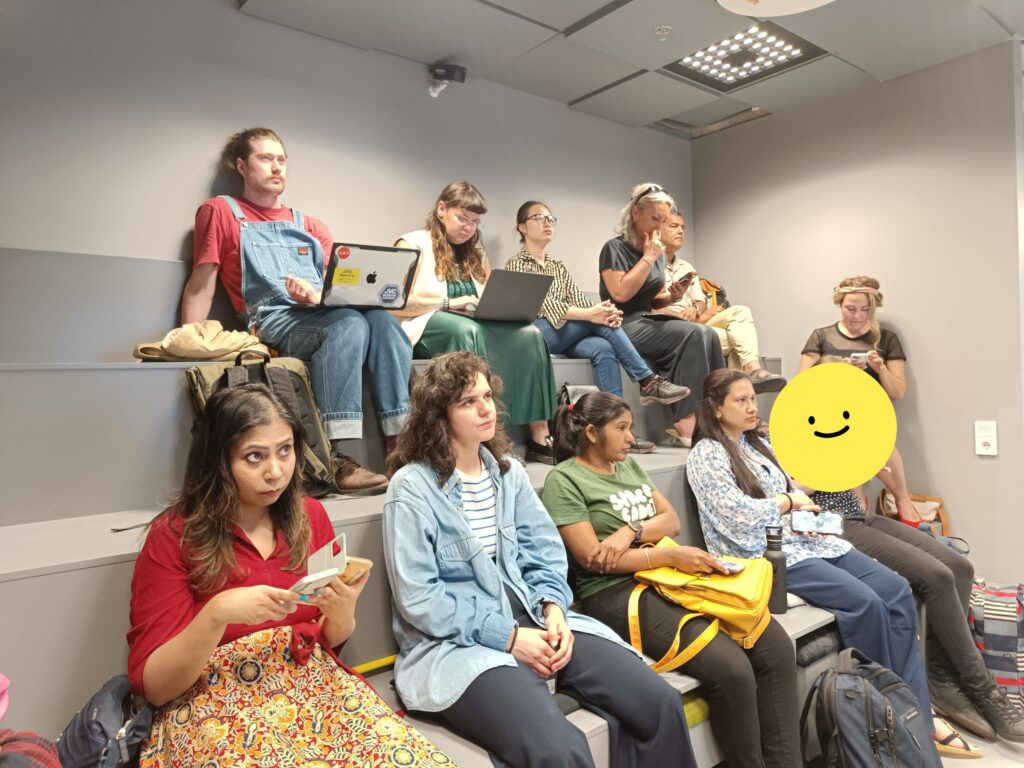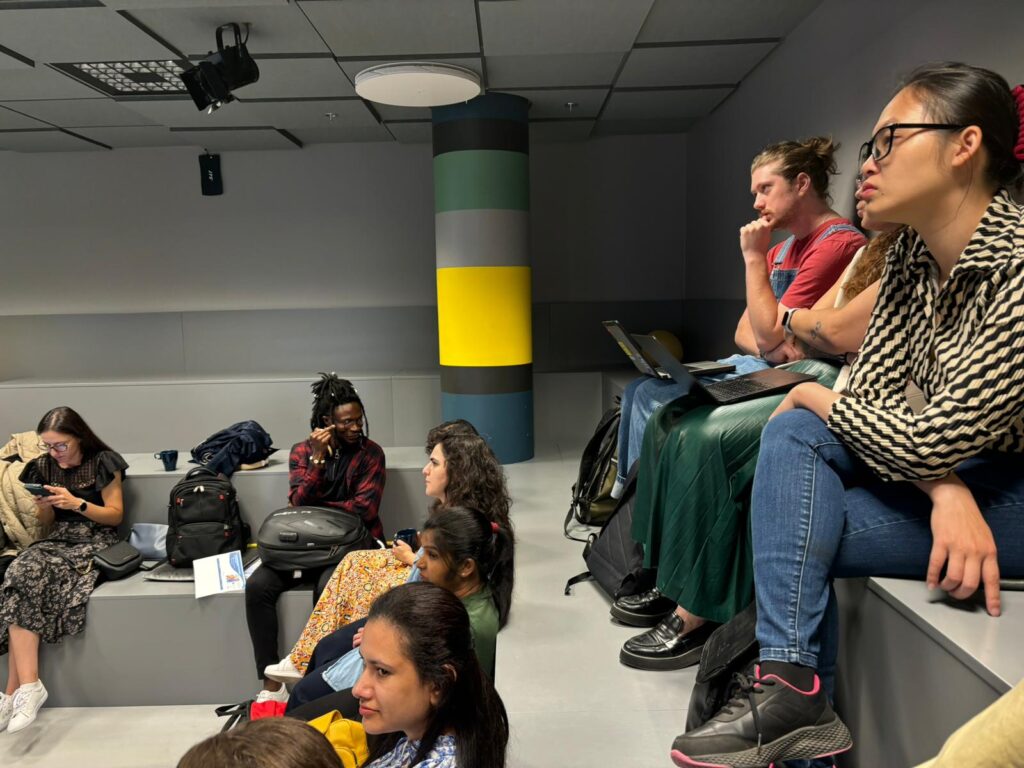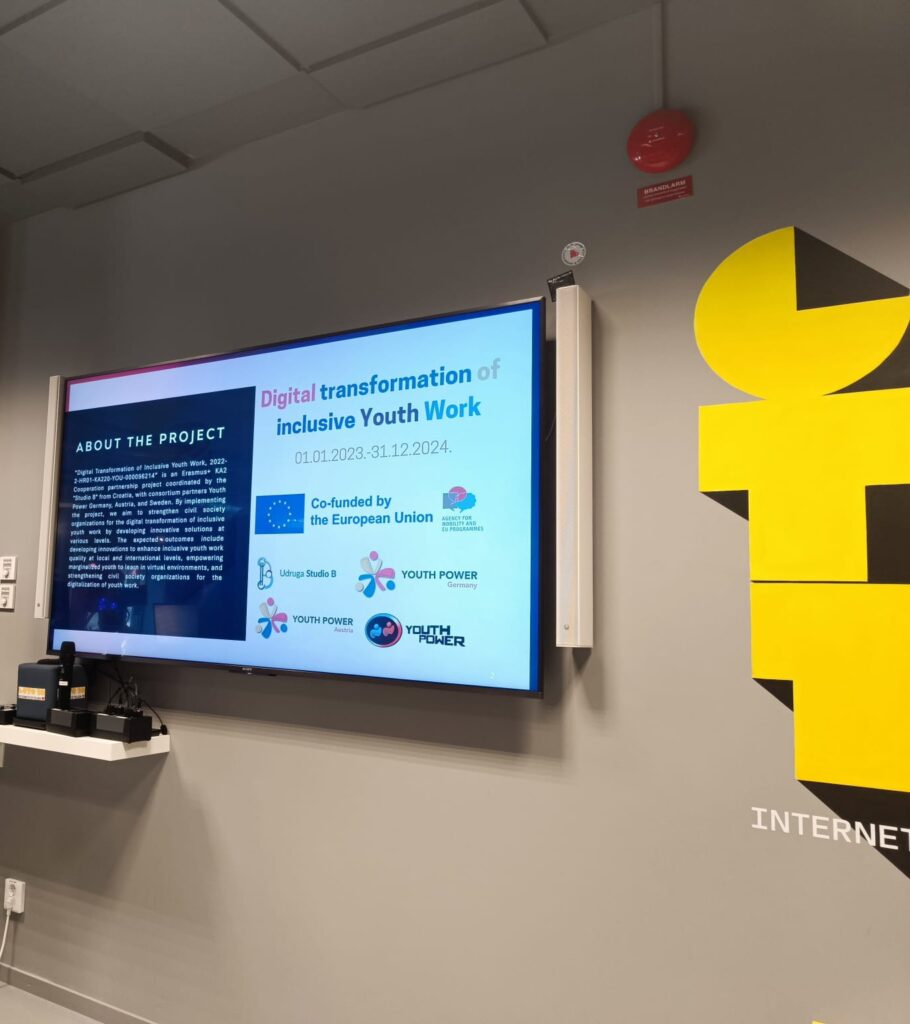On June 4, 2024, the Digital Education for Inclusive Youth Work Conference was successfully held in Sweden. This one-day event brought together key stakeholders from the educational and youth work sectors to present and discuss five newly developed educational programs. These programs were designed to enhance digitalization, inclusivity, and sustainability in youth work, aligning with the Erasmus+ principles and non-formal education (NFE) methodologies.

A Gathering of Experts and Changemakers
The conference provided a platform for NGOs, educators, government institutions, and youth associations to explore innovative training programs aimed at addressing contemporary challenges in youth work and education. Among the participants was the project coordinator, Udruga B from Croatia, alongside representatives from a wide range of countries and backgrounds.
Training Programs Introduced
During the conference, five innovative educational programs were showcased, designed to tackle key issues in youth work:
- Youth in Virtual Environment – Addressing cyberbullying, media literacy, and internet addiction.
- Stress Management for Youth Workers – Providing strategies for stress awareness and regulation.
- Innovative Inclusion in NFE – Introducing methods to ensure accessibility and enriching learning experiences for all young people.
- Sustainability in Youth Work – Integrating sustainability principles into educational programs.
- Digitalization in Youth Work – Equipping youth workers with digital tools and methodologies for effective engagement.
Key Takeaways and Impact
The conference emphasized the importance of digital transformation in inclusive youth work, highlighting several critical themes:
- Enhancing Digital Competencies – Equipping youth workers with digital skills to better engage young people in both online and hybrid environments.
- Inclusivity and Accessibility – Ensuring educational programs are accessible to all, regardless of socio-economic background or digital literacy levels.
- Adapting Training for Various Sectors – Extending the applicability of these programs beyond youth work, such as corporate team-building sessions.
- Flexibility of Implementation – Designing training for both online and offline learning, ensuring broader digital transformation efforts.

Strengthening Partnerships and Future Prospects
A major outcome of the conference was the establishment of new connections between youth workers and NGO organizations. Following the event, several organizations expressed interest in forming partnerships and developing projects within the Erasmus+ program.
With ongoing evaluation and implementation, the training programs introduced are expected to have a lasting positive impact on youth engagement and education across Europe. The conference marked a significant step forward in fostering international cooperation and strengthening the capacities of educators and youth workers for the future.
Stay tuned for further updates on how these initiatives continue to shape the landscape of digital and inclusive youth work!
These activities are part of the “Digital Transformation of Inclusive Youth Work” project, co-financed by the European Union and in partnership with organizations from Sweden, Croatia, Germany, and Austria. The project seeks to integrate digital tools into inclusive youth work on an international scale. By adopting innovative digital teaching methods, we aim to enhance the quality of youth work and promote the inclusion of young people with fewer opportunities.

